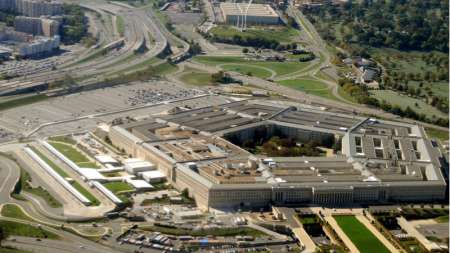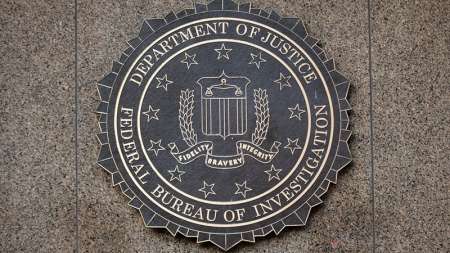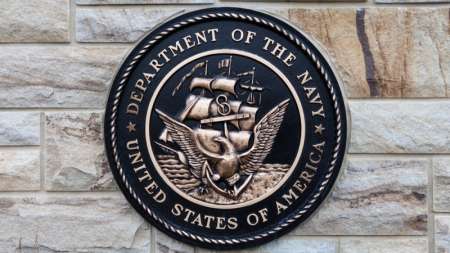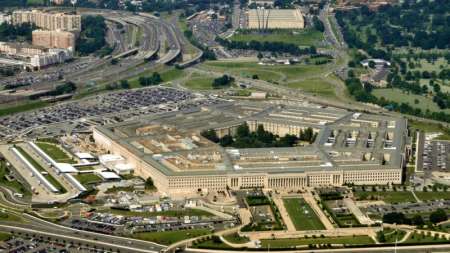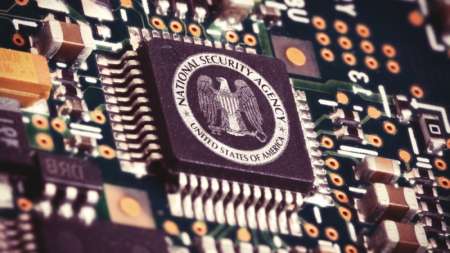The Department of Defense published an unclassified version of its long-awaited cloud strategy Monday afternoon, which features an enterprise cloud environment that includes “general-purpose” and “fit-for-purpose” cloud infrastructures achieved through multiple vendors, and identifies seven strategic objectives for the effort. […]
The Federal Bureau of Investigation (FBI) has tapped John Brown for a promotion, according to a report from The Hill. […]
A trio of Defense Department IT heavyweights told senators at a Jan. 29 hearing that the agency is tightly focused on implementing the cybersecurity strategy it unveiled last year, and they expressed a high degree of confidence that their efforts in 2019 to implement that strategy will drive security improvements. […]
If recent events are any indication, we could be seeing big changes to agency cloud migration plans in 2019. The Federal government could be rethinking its role in owning and operating its own data centers, strongly questioning whether that is a job best left to government employees. […]
The Department of Defense and the Defense Information Systems Agency (DISA) today released a draft request for quotations (RFQ) for the $7.8 billion Defense Enterprise Office Solutions (DEOS) contract. The deadline for responses is February 15. […]
According to an internal evaluation report, the Department of Defense’s (DoD) Joint Regional Security Stacks (JRSS) program is behind schedule, undermanned, full of cybersecurity issues, and should be discontinued until the system demonstrates that it can assist network defenders in detecting and responding to cyberattacks. […]
From a cybersecurity perspective, the strengths of artificial intelligence (AI) and machine learning (ML) are also weaknesses. The capacity to crunch massive amounts of data, identify patterns, and learn while working covers a lot of territory, but also leaves room for vulnerabilities, which Pentagon and Intelligence Community (IC) researchers want to close up. And the job doesn’t look easy. […]
The Department of Defense (DoD) has put a lot of emphasis on speeding up the acquisition and development of new technologies out of a need to keep pace with new advances and potential adversaries. But a new report from the Government Accountability Office (GAO)–evaluating the Army Futures Command modernization effort–throws in a word of caution, saying there is such a thing as going too fast. […]
The Department of Defense puts a lot of effort into cybersecurity but still has some significant holes in its structure, some of them dating back a decade, according to a report issued earlier this month by the department’s Inspector General (IG). […]
The U.S. Marine Corps (USMC) has extended the deadline on a request for information for cloud migration services, with the goal of closing multiple data centers and moving a suite of applications to a commercial cloud environment. The RFI is open until February 20. […]
In a continuing effort to move email systems to the cloud, the Air Force said in migrated 555,000 email accounts to the Microsoft Office 365 cloud in early January, marking the first phase in a $1 billion Cloud Hosted Enterprise Services (CHES) program. […]
The Defense Advanced Research Projects Agency (DARPA) Information Innovation Office will host a Proposers Day on Feb. 6 to provide information on a future Broad Agency Announcement about Guaranteeing AI Robustness against Deception (GARD) program. […]
The Navy has awarded General Dynamics Information Technology a potential five-year, $155.6 million task order to provide cybersecurity support for the Department of Defense program that is overseeing the F-35 fighter jet. […]
The U.S. Air Force is moving forward with its planned restructuring its headquarters’ information technology, cyber, and intelligence operations, according to an interview between Undersecretary Matt Donovan and Federal News Network on Wednesday. […]
The Army Materiel Command announced that it merged the positions of CIO and Intelligence, Physical Security Officer as part of the command’s Shape The Fight initiative. […]
Data can travel around the world in a blink of an eye and show up on practically any device, be it a networked PC, a phone, or some other mobile component. […]
The National Intelligence Strategy, released yesterday by the Office of the Director of National Intelligence (ODNI), names cyber threat intelligence as one of seven mission objectives for the intelligence community, and addresses threats and opportunities from emerging technologies. […]
The Department of Defense (DoD) is seeking Rapid Innovation Fund (RIF) applications for fiscal year 2019, according to a broad agency announcement released Friday. […]
The military has long had the goal of giving troops on the ground a clear operational picture. That can include the location of enemy troops, their own troops, the location of buildings or fortifications, the movement of ground vehicles or aircraft, and a lot of other variables. It’s what the Army, for instance, has been working toward with programs to develop an integrated tactical network. […]
The Air Force’s National Air and Space Intelligence Center on Wednesday released a report identifying the potential threats that China and Russia’s presence in space has on civil and military space services. […]
The General Services Administration (GSA) is planning to issue a draft request by the end of January to solicit information on a purchase agreement to develop a cloud computing service called Defense Enterprise Office Solutions (DEOS) to update the Department of Defense’s (DoD) legacy information technology applications. […]
In a report released today, Deloitte researchers posit that artificial intelligence (AI) is the key to “unleashing the power of unstructured government data.” […]
Despite several years of talk about getting rid of the Common Access Card, the CAC has continued to be the toilet paper stuck to the Department of Defense’s shoe. […]
On Tuesday, the Office of the Inspector General (OIG) released a semi-annual report of the National Security Agency (NSA) to Congress that cited several security concerns for the agency’s technology and data. […]
In a December report, the Department of Defense (DoD) assessed the global expansion by China and what it could mean for the United States’ future defense capabilities. […]
On Tuesday, Microsoft announced that the mobile version of its Microsoft Outlook platform would be available to all Federal customers after updates to its platform met high-level compliance standards with the Department of Defense (DoD). […]
The U.S. Air Force’s AFWERX organization has issued a solicitation for an “innovative adaptation of a commercially available development-to-operations (DevOps) platform-as-a-service (PaaS).” […]
The Department of Defense will expand the mission of active-duty troops at the U.S. southern border to include mobile surveillance and detection activities, at the request of the Department of Homeland Security (DHS), according to a Monday news release. […]
The Air Force extended a request for information on Monday, looking for assistance in creating an Enterprise Information Technology as a Service for the service branch’s Special Access Program (SAP). […]
General Dynamics Information Technology (GDIT) announced today it has been awarded the Department of Defense’s Joint Force Development contract vehicle. […]

